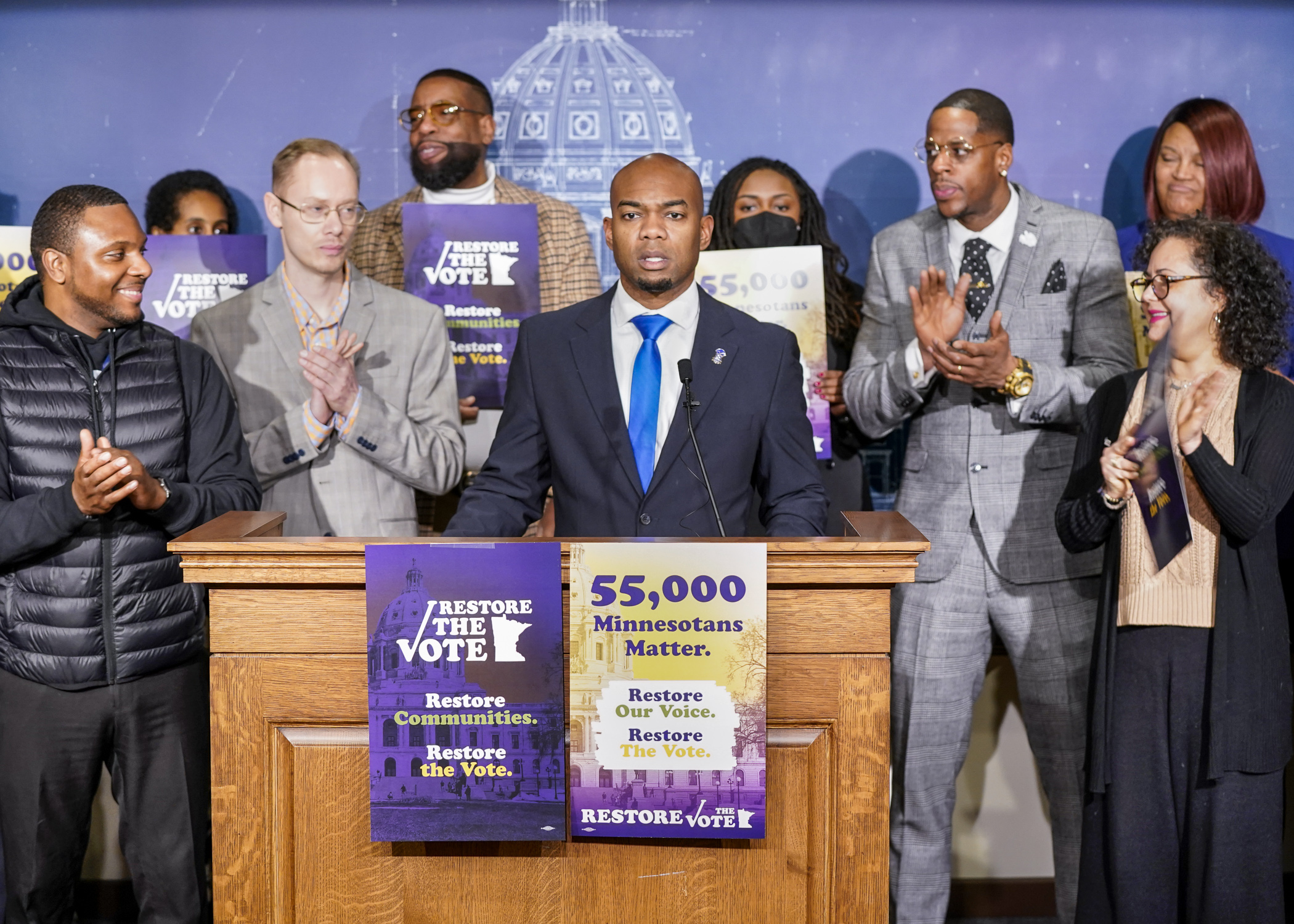House votes to restore voting rights to felons post-incarceration

People once incarcerated for their felonious misdeeds should be able to have a say in what happens on the outside.
So says the majority of the House.
Sponsored by Rep. Cedrick Frazier (DFL-New Hope) HF28 would restore the right to vote to individuals convicted of a felony once they are released from incarceration, rather than their completion of a sentence, including probation. Written notice and a voter registration application would be provided by the Corrections Department to an individual upon release from incarceration.
Passed 71-59 by the House Thursday, it now goes to the Senate.
Because Minnesota is a low-incarceration, high-probation state, former inmates can remain under the watchful eye of local or state corrections officials for years — or even decades. Minnesota is one of at least 16 states where any probation, parole or supervised release must be completed before a person’s voting right is restored. Policies vary across other states. Twenty-one states allow what this bill would do.
While integrating back into society and going about their daily lives like people who have not been housed in a cell, these individuals cannot do one of the most basic aspects of freedom: casting a ballot.
“These disenfranchised individuals live in the community, they are our neighbors our friends, our daughters, our sons, our cousins, our mothers, our fathers. They have jobs, they help take care of their families, they pay taxes, they are subject to the law and policy decisions that we make in this body, but in our representative government they are deprived of the foundational right to vote, the right to give them a voice and allow them to participate in our democracy,” Frazier said.
Proponents estimate 55,000 Minnesotans would be affected by the change — many of whom, supporters say, think they’ll never get to vote again because of their conviction.
“Part of returning to society means being allowed to function as a fully restored human being. Voting is one of the most fundamental and quintessential rights of our country,” said Rep. Athena Hollins (DFL-St. Paul). “… I would argue that denying individuals the right to vote is downright un-American.”
A person who violates release requirements and returns to imprisonment would again lose their right to vote until being released from custody.
The bill would provide the Office of the Secretary of State $14,000 from the General Fund in the current fiscal year to cover implementation costs.
Some Republicans expressed concern about a one-size-fits-all model.
“Members on this side of the aisle are all for second chances, but with limits,” said Rep. Peggy Scott (R-Andover).
Amendments were offered — and ultimately withdrawn — by Republicans to keep current law in place for offenses related to murder or criminal sexual conduct; elections, voting or the conduct of campaigns; making terroristic threats, stalking, or the harassment of public or law enforcement officials. The same was true for one to require the payment of fines, fees, penalties, and other restitutions before a voting right is restored.
Rep. Paul Torkelson (R-Hanska) said nothing in the bill would stop someone who committed felonious voter fraud from voting in the next election. “We should choose to protect the sanctity of our vote,” said Rep. Anne Neu Brindley (R-North Branch).
Related Articles
Search Session Daily
Advanced Search OptionsPriority Dailies
Speaker Emerita Melissa Hortman, husband killed in attack
By HPIS Staff House Speaker Emerita Melissa Hortman (DFL-Brooklyn Park) and her husband, Mark, were fatally shot in their home early Saturday morning.
Gov. Tim Walz announced the news dur...
House Speaker Emerita Melissa Hortman (DFL-Brooklyn Park) and her husband, Mark, were fatally shot in their home early Saturday morning.
Gov. Tim Walz announced the news dur...
Lawmakers deliver budget bills to governor's desk in one-day special session
By Mike Cook About that talk of needing all 21 hours left in a legislative day to complete a special session?
House members were more than up to the challenge Monday. Beginning at 10 a.m...
About that talk of needing all 21 hours left in a legislative day to complete a special session?
House members were more than up to the challenge Monday. Beginning at 10 a.m...